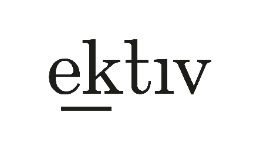With the increasing internationalisation of markets, VAT in cross-border transactions is becoming an increasingly important issue. Therefore, it is important for foreign companies that maintain business relations with Italian companies and private individuals to know about the possible VAT obligations in Italy. Below is a brief list of the most relevant cases:
Intra-Community purchases of goods by Italian companies
As of 1st of January 2020, important changes in the area of VAT and intra-Community exchange of services have come into force, which have been introduced by two EU Directives (Directives No. 2018/1910/EU and No. 2018/1912/EU). The individual member states must transpose those EU directives into national law. Even if this has not yet occurred in Italy, the changes are in principle applicable (especially if it is in favour of the taxpayers).
Since the changes concerning the proof of transport of goods outside the Member State of departure in the context of intra-Community trade have been directly included in the Implementing Regulation (No 282/2011), no transposition process is necessary, and the changes are directly applicable in the individual Member States.
To prove the Intra-Community delivery of goods, extensive documents are necessary. In this context, a distinction is made between transport or dispatch by the supplier and transport or dispatch by the purchaser or customer. At least two of the following non-contradictory documents issued by two different parties are required.
· A signed CMR consignment note – proving the transportation between two different countries
· The bill of the transport tax
· Bill of loading
· Transport insurance policy
· Bank documents of the payment
· Public notarial attestation of arrival in the Member State of destination
· Storage confirmation of the warehouse keeper
If, on the other hand, the transport or dispatch is carried out by the foreign purchaser, a written declaration must be issued to the supplier in addition to the documents listed above. In this declaration, the foreign purchaser must state the Member State of destination and that the goods have been dispatched by the purchaser himself or by a third party on his behalf. The declaration must be sent to the supplier within the last 10 days of the month of delivery.
Series transactions: VAT treatment in the case of the participation of three companies
A chain transaction for VAT purposes, also known as a triangular transaction, occurs when at least three traders conclude turnover transactions for the same goods and the goods are transported directly from the first to the last customer in the chain (from one Member State to another Member State).
To correctly allocate the tax-exempt intra-Community supply between different companies, it is necessary to focus on the transport. Due to the complexity of triangular transactions in intra-Community trade in goods, it may be necessary for a foreign company to identify itself for VAT purposes in Italy, as it is involved in a triangular transaction.
Consignment stores in Italy
The provisions regarding a consignment warehouse of a foreign company in Italy have also undergone changes with effect from the 1st of January 2020. A consignment warehouse offers the foreign company the opportunity to operate a warehouse in the vicinity of its customers. The goods are delivered to the consignment warehouse and the customer has the possibility to take the goods out of the warehouse as needed. The following requirements must be met in this regard:
· A consignment stock contract must exist.
· The supplier who delivers his goods to the consignment warehouse must not have established a permanent establishment in the country of the consignment warehouse.
· The recipient of the goods must be known before delivery.
· The supplier and the buyer must each keep a separate register listing the goods stored and those subsequently removed.
· The goods delivered to the consignment warehouse must be reported in the Intrastat declaration.
Sale of goods to private individuals (E-commerce):
Online trade has opened new markets for many traders and therefore selling to customers from other EU countries has long been part of everyday life. However, cross-border mail order follows certain rules that foreign companies in the E-commerce sector should comply with.
The supply of goods to private individuals within the EU follows different rules compared to supplying to companies. For example, the foreign company can invoice and pay the VAT of its own country up to a certain turnover amount (so-called supply threshold). If the delivery of goods to private individuals exceeds the annual delivery threshold of 35,000.00 €, the foreign company is obliged to identify itself in Italy for VAT purposes and to apply for an Italian VAT number.
We will be happy to answer your questions regarding cross-border VAT issues and inform you at an early stage about the obligation to register your company for VAT purposes.

Copyright 2020 Ektiv Srl
All Rights Reserved
Ektiv Srl società tra professionisti
USt-IdNr.: IT03077130213
Via Brennero 5, I - 39055 Laives (BZ)

